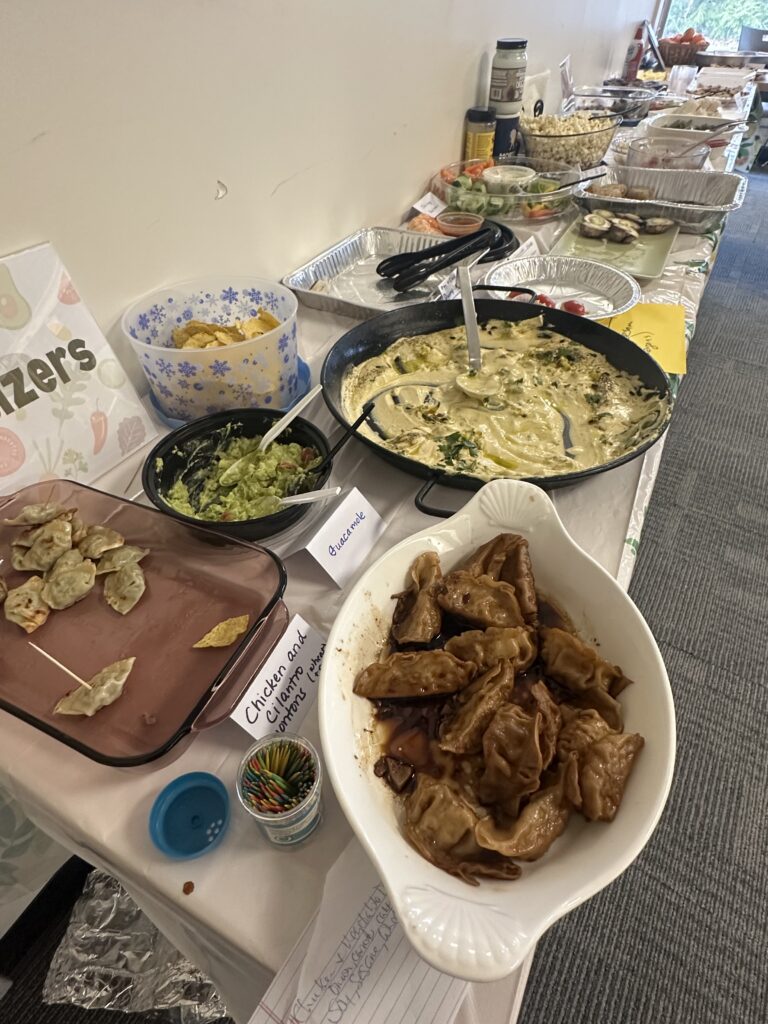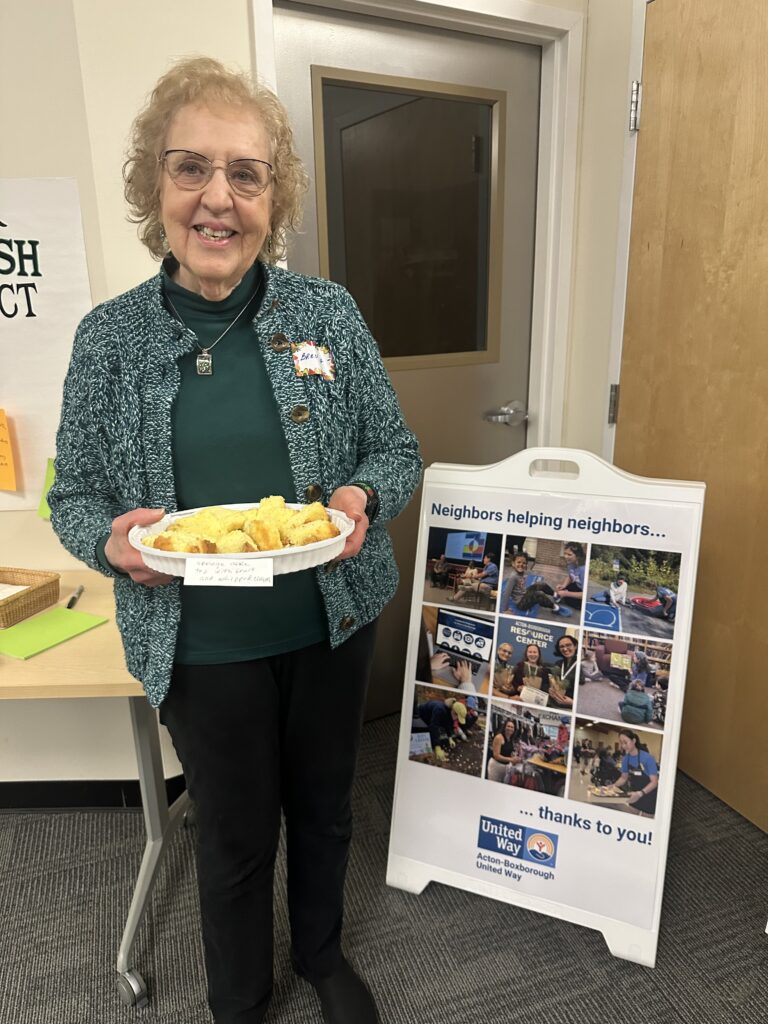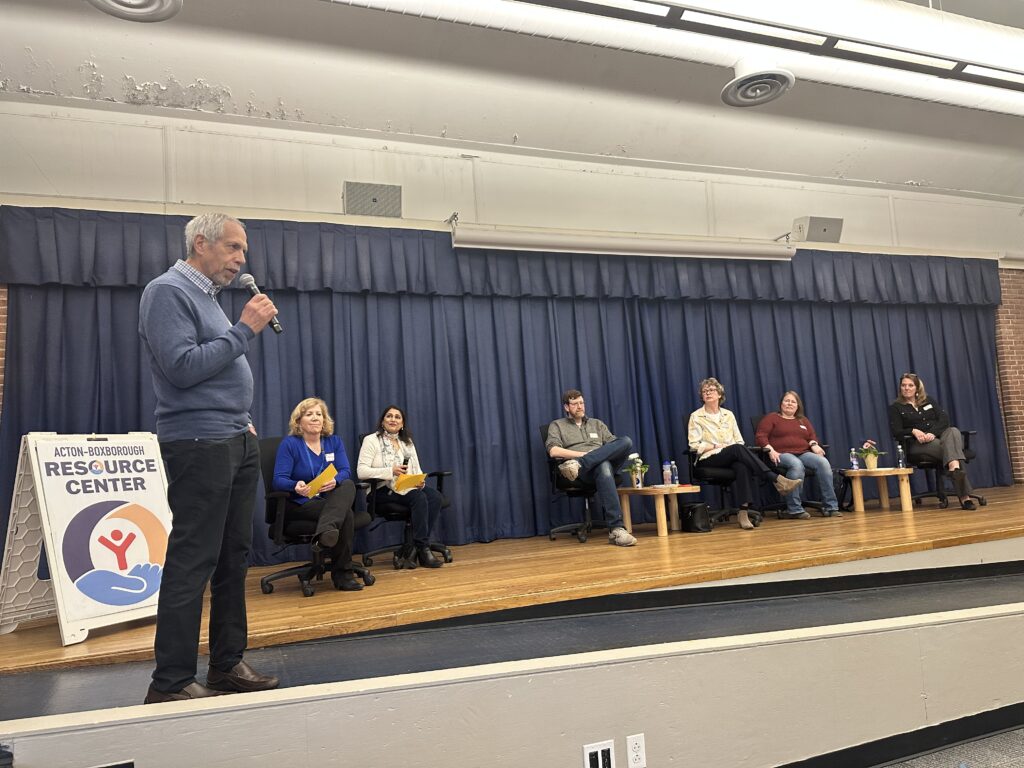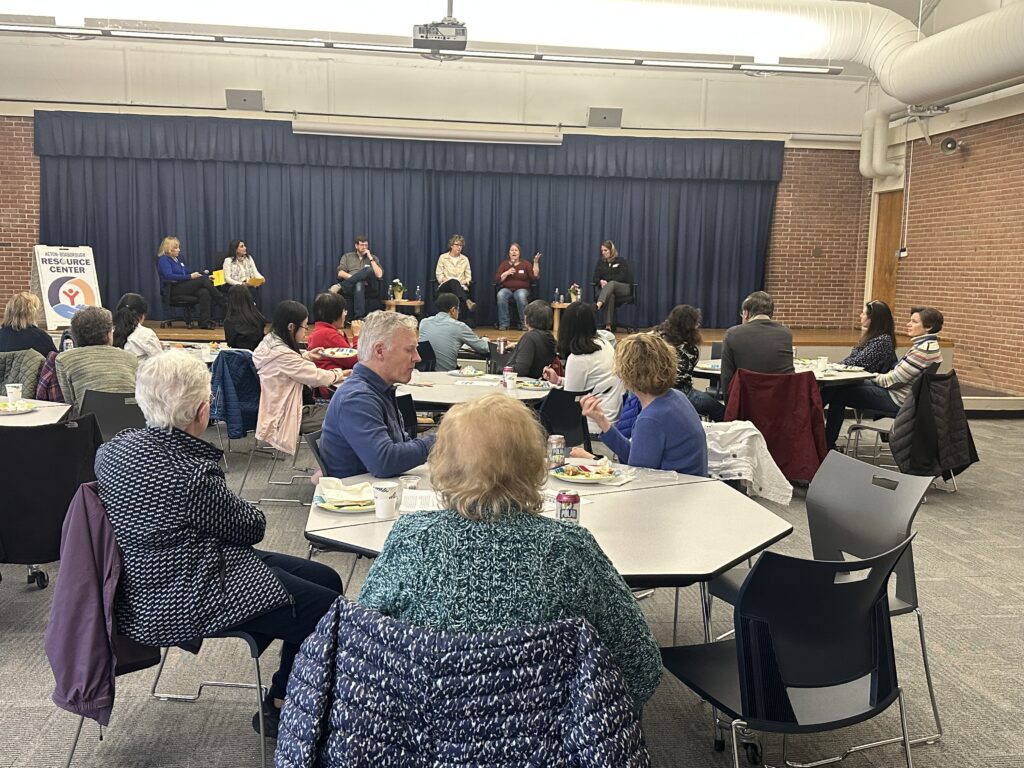The Nourish Project nourishes body and mind
April 12, 2025
by Alissa Nicol
On Sunday April 6, the Wellness Committee of the Acton Boxborough United Way hosted a community potluck at the AB Resource Center on Charter Road as part of their Nourish Project that was launched last fall. Community members were encouraged to bring healthy appetizers and desserts to share, and enjoyed a panel discussion led by local experts.

Other Nourish Project programs include the creation of a Community Cookbook and a Tasting Week. Residents in the two towns have submitted 40 recipes so far, and the cookbook should be available online by the end of spring. The committee is still encouraging submission of entries. Brenda Linsey, who submitted the winning recipe, was in attendance with her Passover sponge cake. The Nourish Week in February connected food security partners for a community-wide food drive, and local restaurants and food purveyors profiled recipes and ingredients that promote healthy options.

Steve Michelson, retired psychologist and long-time Acton resident described the work of the Wellness Committee and introduced attendees to ABUW board members Kathleen Casey and Gauri Tandon who would moderate the panel.

The panelists were first asked to comment on how nourishment—through food, connection, and community—impacts well-being. Barbara Casaceli, a registered dietician at Acton Medical, shared her assessment that “food plays a huge role in both physical and mental health, and you can’t do without both.” Lisa Gordon, the Acton Food Pantry’s Executive Director, noted, “We are a social animal, and we are a lot healthier when we come together and break bread together. There are better health outcomes, especially for children, when we eat with our families.” Adam Stark, with Debra’s Natural Gourmet, a well-regarded health food store in West Concord, noted that “we are genetically, evolutionarily programmed for scarcity. Our ancestors faced malnutrition and other diseases related to food scarcity. Now we are dealing with diseases related to food excess.”

Kirsten Nelson, Director of Food Services for the regional school district, shared, “For us, we saw a huge need when COVID closed the schools, and the community really came together to address it. Over 300,000 meals were served curbside during the pandemic. These community programs are continuing, and have evolved. We’re going to have a refrigerated van serving food all summer long, right off the rail trail. Spread the word, and come get a smoothie. It’s all free.” Gordon followed up by commenting further on food insecurity, by noting, “In the northeast, we are faced with the most expensive food prices in the entire country.”
The panelists provided thoughtful responses to the question, “If you could recommend one change, what would it be?” They offered the suggestions to drink more water, to eat more plants, and to eat according to your culture and family traditions. The final question posed was, “How can we foster healthy eating, and encourage nourishment for our community?” Nelson spoke to a current challenge, noting that “[the schools] have contracts with local farms to provide fresh produce in the schools, but we are facing cuts, which is going to make it harder to continue those programs.” Stark suggested bringing home economics classes back to the schools, and encouraging a better understanding for students of the food environment.
Gordon mentioned that food pantries are now striving to offer choices to clients that honor traditions, and that to really nourish and respect a community, we must respect families’ food culture. The Acton Food Pantry sources food from “food rescues” at grocery stores, and also from the Greater Boston Food Bank. The recent reductions in USDA funding mean that the pantry no longer has access to fish, ground pork and other types of meat, and this week there was no milk. “It’s a pretty stark outlook and it has started already.” Nelson mentioned financial impacts as well, sharing that the schools have seen cuts to the MA Farm to School program which is also USDA funded, so it will be a challenge to continue to source food from local suppliers such as Walden Local for burgers and Red’s Best for fish.
Gordon highlighted the importance of partnerships such as the pantry’s partnership with the schools, which includes a pantry at the high school for students and a backpack program providing food for elementary students to take home. The pantry also partners with Open Table. Adding details to the school environment, Nelson shared that since COVID, there has been a 400% increase in breakfast service with students. Since she started with the district 20 years ago, the percentage of students who qualify for free lunch has increased from 2% to 16%.
When the floor was opened to community members to pose questions and offer comments, attendees focused on the pressing challenges and ways that neighbors can step up to support one another and the organizations that address food insecurity locally. There was a general consensus that the community continue striving to find ways to support our food pantries, community suppers, Meals on Wheels, and Council on Aging meal programs.
Alissa Nicol is an Acton Select Board member.

